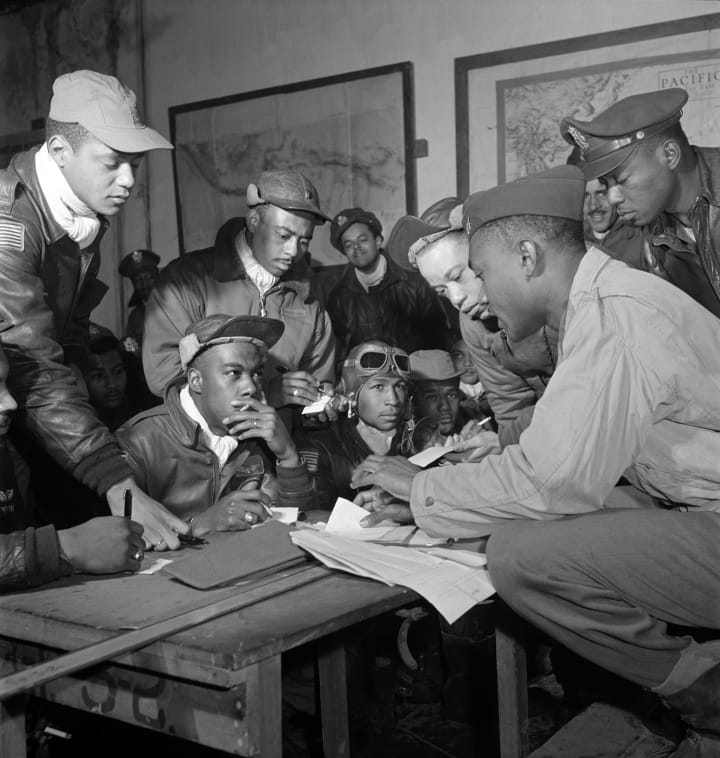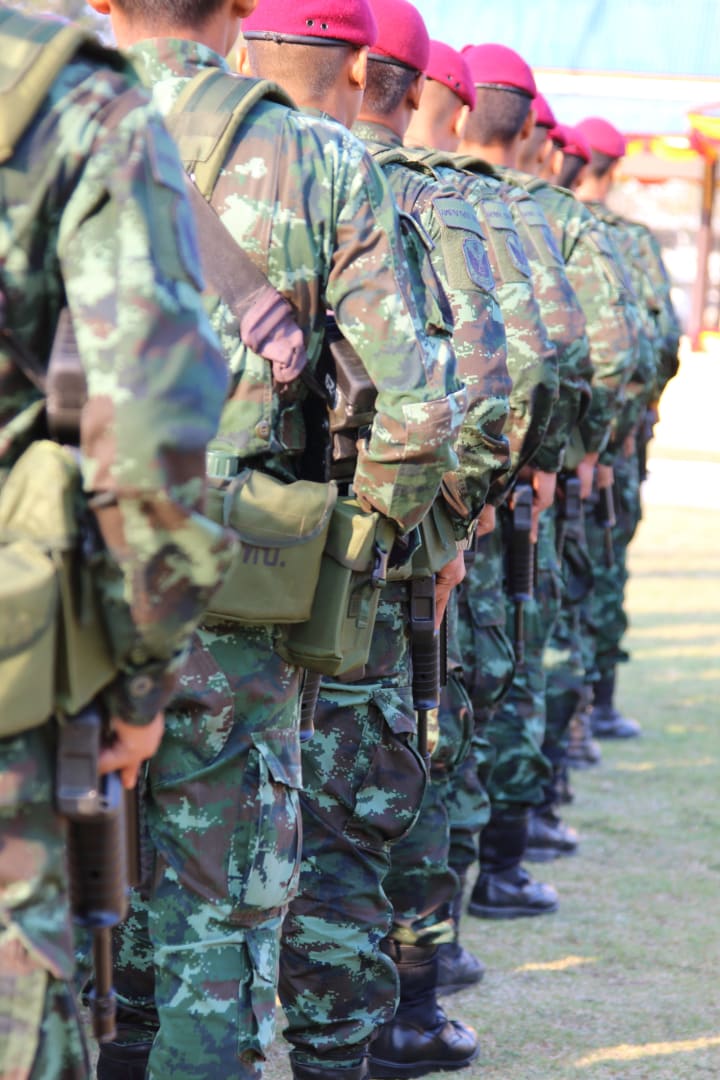Who Is Jody?
You've heard of Jody, and you know it's not a good thing to be —but do you really have an answer to who is Jody?

If you’re in or affiliated with military service, you’ve probably heard the term ‘Jody’, or heard someone referred to as Jody. It’s never a good thing. But who is Jody? What does that designation really mean? And of course, where did it come from? The simple answer is that Jody is a man who stays home and fills your shoes—romantically—with your girlfriend or wife. He sits on the soldier's couch, eats his food, and even sometimes will even drive the soldier's car. But the history of the term, and its complex uses and connotations, involve a lot more than just, well, stealing your girl.
Where did Jody first show up?

Toni Frissell [Public domain], via Wikimedia Commons
Asking “who is Jody” is almost a trick question. Jody isn’t one person, and never was. Rather, ‘Jody’ is a term that refers to a man who swoops in while you’re serving, sleeps with your girlfriend, and fills in your shoes. Although ‘Jody’ is itself a name, it did not originate with a particular person of that name—rather, the term developed out of the phrase “Joe the Grinder.” This was a phrase first heard among blues singers in WWII, introduced by African-American musicians to refer to a “Joe,” a name commonly associated with anonymity for being so common (as in, “average Joe”), and “the Grinder,” which was sexual slang. Of course, as most everyone with military affiliation is at least somewhat familiar with this term by now, it’s clear that this slang did not stay merely a part of African-American blues songs.
How did the name develop?
You may be thinking, okay, that tells us who Joe the Grinder is… but who is Jody? Especially since, as a first name, Jody is presently more common among females, the connection is not clear. But over the course of the war, but the middle of the 1940s, “Joe the Grinder” had been shortened to “Joe D.”—in common speech, “Joe the Grinder” would have sounded more like “Joe de Grinder,” or Joe D. Shortly thereafter, the “Jody,” “Joady,” or “Jodie” became popular military slang terms that we hear used today came into popular use.
Where is this term used?

Photo from army.mil
Even if you’ve been lucky enough never to know a Jody yourself, you’ve probably sung or heard a popular military cadence using the term. In fact, military cadences—a call-and-response rhyming—were long called “Jody calls.” Many such cadences used the term and its connotations to inspire aggression and alter the emotional affect of soldiers, cutting them off from their memories of home and giving them something to hate. These “Jody calls” are also generally humorous and/or satisfying, with lyrics like:
My honey heard me comin' on my left right on left
I saw Jody runnin' on his left right on left
I chased after Jody and I ran him down
Poor ol' boy doesn't feel good now
Implying the opportunity to beat up the guy who slept with your ‘honey’. Of course, the primary purpose of these Jody calls are to synch a rhythm for uniform marching. But that doesn’t mean that the content couldn’t itself be both entertaining and instrumental—as well as controversial, in time. These kinds of cadences can be positive, inciting camaraderie and pride, and providing soldiers the opportunity to vent. But they can also be highly offensive, painting ever-more-strict lines “us” and “them,” referring not only to the enemy in war, but also to any groups not represented in the military, including women, homosexuals, and the disabled. While this delineation had its instrumental value, it has contributed to the kinds of tensions between the public and members of the military, who are often characterized as bigoted or closed-minded.
Who is Jody?
So, after all this etymology, you have some sense of what a Jody is, where the term came from, and who it could refer to. But the use of the term carries with it a number of connotations not contained in its definitions or brief history. First of all, when the term Jody was introduced in WWII, the decision to serve in the military was somewhat less of a choice. While this decision is today considered honorable and widely respected, at that time, it was considered almost mandatory—the reasons for a man to stay back home, with your girl, were much fewer. Men who did stay back generally had physical, psychological, or medical conditions that disqualified them from serving or were deemed somehow unfit for the military, leading to a general attitude of derision and contempt among serving members. The term “Jody” picks up on these kinds of connotations, picking out someone who is cowardly, lacks honor, and is unwilling to make the same self-sacrifice as the serving members. Instead, Jodies stay home, living in safety and luxury, and take advantage of the good things left behind by serving members—most significantly, the now-lonely wives.
Who is Jody today?

Photo by Somchai Kongkamsri
The origin of “Jody” is deeply tied to cultural and military practices that aren’t quite so commonly seen today. For one, military service is no longer mandatory—even for able-bodied men of the right age. Secondly, the demographic makeup of the military, though still largely homogeneous, has become much more diverse. So where do Jody calls and the notion of Jody as a kind of person fit into the changes we’ve seen in the military?
Well, unfortunately, very little has changed. While connotations may shift necessarily over the course of more than half a century, the fact remains that there are always girlfriends and wives who cheat on deployed partners—and so, there are always Jodies. They might not technically be left behind out of cowardice or physical inferiority, as in WWII, but they can sure be condemned for being immoral.
Of course, as others have noted, not all of the reasons for this construction of Jody in the military are related to real people or events. There is also a significant influence of fear on the hatred of Jody figures and the use of them as verbal punching-bags in Jody calls. This fear comes from the simple fact that soldiers abroad realized how easy it was to cheat, how difficult to get caught, and how tempting it could be—rates of infidelity among soldiers were hard to calculate, but were certainly far above the average.
About the Creator
Nicola P. Young
Lover of Books, Saxophone, Blogs, and Dogs. Not necessarily in that order. Book blogger at heartofinkandpaper.com.
Enjoyed the story? Support the Creator.
Subscribe for free to receive all their stories in your feed. You could also pledge your support or give them a one-off tip, letting them know you appreciate their work.






Comments
There are no comments for this story
Be the first to respond and start the conversation.